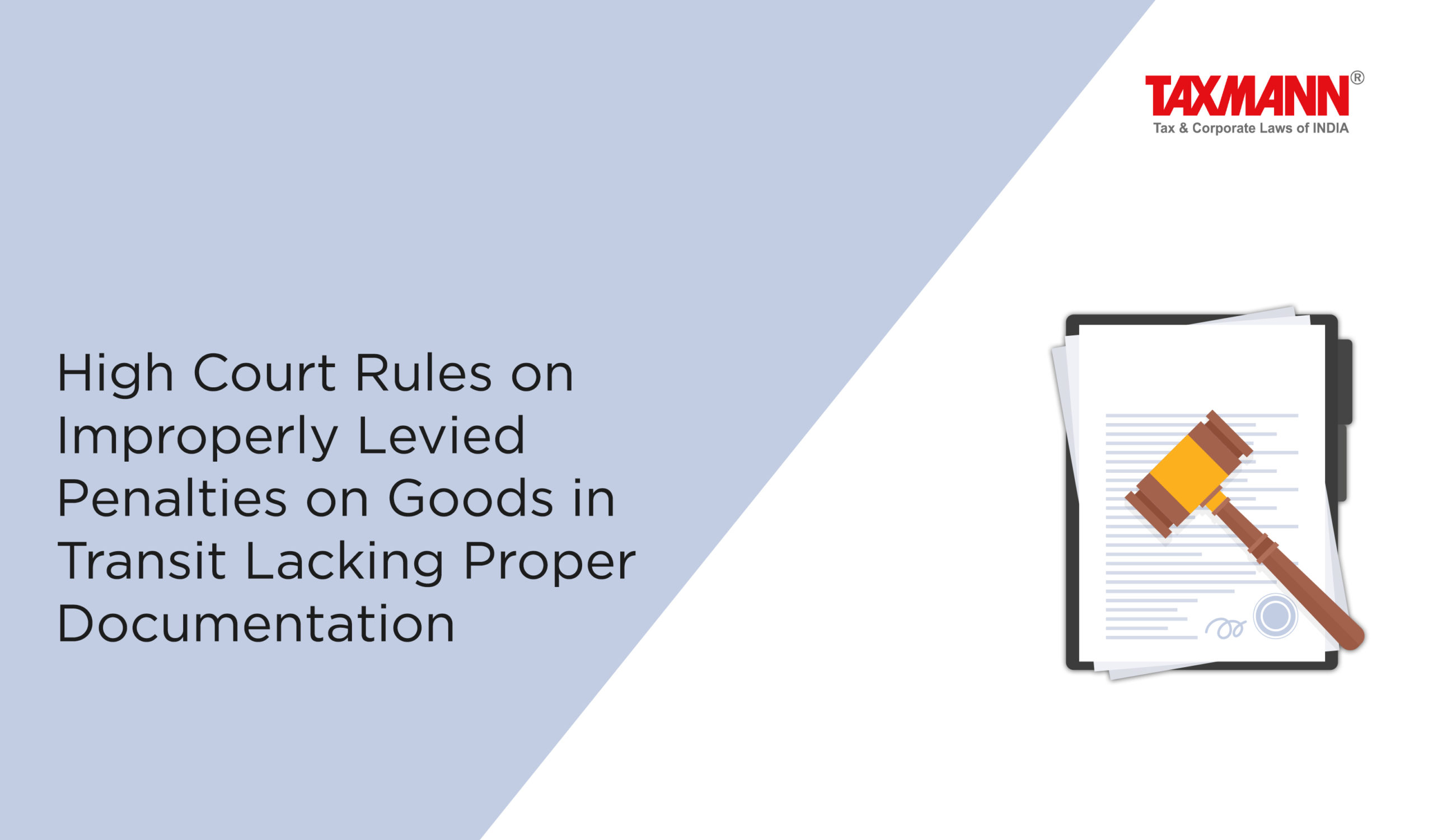High Court Rules on Improperly Levied Penalties on Goods in Transit Lacking Proper Documentation
- Blog|News|GST & Customs|
- < 1 minute
- By Taxmann
- |
- Last Updated on 25 July, 2023

Case Details: Margo Brush India v. State of U.P. - [2023] 152 taxmann.com 515 (Allahabad)
Judiciary and Counsel Details
-
- Rajesh Bindal, CJ. & J.J. Munir, J.
- Aaditya Pandey & Akhil Agnihotri, Advs. for the Petitioner.
- Ankur Agarwal, Standing Counsel for the Respondent.
Facts of the Case
In the present case, the goods in transit were seized by the authorities on the ground that goods were not accompanied by proper documents. The driver of the vehicle was deemed to be the owner of goods and penalty of 100% of value of goods was levied. The petitioner filed writ petition and contended that penalty was wrongly levied since both consignors and consignees of goods detained in transit were present and accepting ownership of seized goods.
High Court Held
The Honorable High Court noted that the levy of penalty under Section 129(1)(b) could not be justified as Section 129(1)(a) provides that where owner of goods comes forward for payment of penalty, the amount has to be two hundred per cent of tax payable. However, in the present case, the penalty had been levied to tune of hundred per cent of value of goods. Therefore, the writ petition was allowed and the matter was remitted back to the competent authority for passing fresh order within a period of two weeks from the date of receipt of copy of the order.
Disclaimer: The content/information published on the website is only for general information of the user and shall not be construed as legal advice. While the Taxmann has exercised reasonable efforts to ensure the veracity of information/content published, Taxmann shall be under no liability in any manner whatsoever for incorrect information, if any.

Taxmann Publications has a dedicated in-house Research & Editorial Team. This team consists of a team of Chartered Accountants, Company Secretaries, and Lawyers. This team works under the guidance and supervision of editor-in-chief Mr Rakesh Bhargava.
The Research and Editorial Team is responsible for developing reliable and accurate content for the readers. The team follows the six-sigma approach to achieve the benchmark of zero error in its publications and research platforms. The team ensures that the following publication guidelines are thoroughly followed while developing the content:
- The statutory material is obtained only from the authorized and reliable sources
- All the latest developments in the judicial and legislative fields are covered
- Prepare the analytical write-ups on current, controversial, and important issues to help the readers to understand the concept and its implications
- Every content published by Taxmann is complete, accurate and lucid
- All evidence-based statements are supported with proper reference to Section, Circular No., Notification No. or citations
- The golden rules of grammar, style and consistency are thoroughly followed
- Font and size that’s easy to read and remain consistent across all imprint and digital publications are applied



 CA | CS | CMA
CA | CS | CMA
